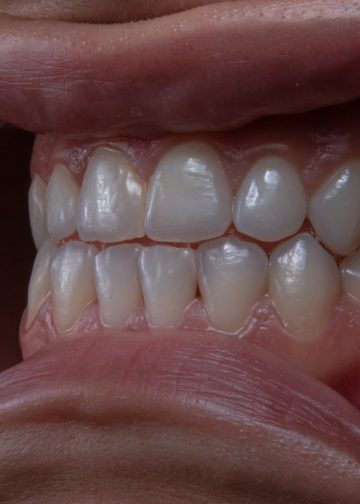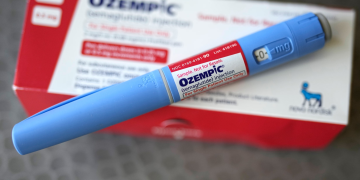We’ll be honest; it’s becoming hard to keep up with these new popping internet slangs daily. However, there is nothing to do but keep training yourselves on these new lingoes to keep up with texting and communication.A popular term flooding social media these days is “ION like that,” and you might be left wondering if someone just misspelled “ion” from Chemistry Class. Spoiler alert: This is not the chemical ion but a new GenZ term that the kids love to use, like salt on fries. So, keep reading this article as we do the ultimate breakdown on what ION means in text.
TL;DR: What Does ION Mean in Text?
In the world of texting and social media, ION means I don’t. Yep, that is all that there is. Nothing deep or profound but a short way of saying “I don’t.”
For example, When someone types “ION like her vibe”, which would easily translate to “I don’t like her vibe.”
The word “ION” is a phonetic contraction, a squished-up, street-smart version of “I don't” when you say it fast. Say it out loud: “I don’t” → “Ion.” Boom.
Where Did “ION” Come From?
No one really knows the exact birthplace of this slang, but we can guess it evolved the way all good slang does — somewhere on Twitter, in a group chat, or deep in the chaos of TikTok. Like many viral phrases (see also: “rizz,” “no cap,” “sus”), it emerged when people realized talking like they text was just easier — and funnier.
Language is always shapeshifting, especially online. And “ION” was born from that sweet spot where laziness meets genius.
Also, let’s be real: “I don’t” has two whole syllables. “ION” has one. Efficiency, baby.
Examples of ION in Text
Wanna speak fluent ION? Here’s how it plays out in real-life texting scenarios:
- “ION care what she said fr.”
Translation: I don’t care what she said, for real. - “ION even know him like that.”
Translation: I don’t even know him that well. - “Bro, ION wanna go out tonight.”
Translation: I don’t want to go out tonight. - “ION got time for that drama.”
Translation: I don’t have time for that drama.
See the pattern? Every time you’re tempted to say “I don’t,” you can now drop an ION and immediately sound 50% cooler.
But Wait — Isn’t “Ion” a Science Word?
YES. You're not crazy.
In science (particularly chemistry), an ion is an atom or molecule with a net electric charge due to the loss or gain of electrons.
Example:
- Sodium loses an electron → becomes a positive ion (cation).
- Chlorine gains an electron → becomes a negative ion (anion).
But in texting? Nah. No electrons here, just vibes and beef.
So context is everything. If someone texts “ION like that energy,” they’re not doing chemistry homework. They’re just not vibing with the energy in the group chat.
Is ION Slang Used by Gen Z Only?
Primarily, yes. But Millennials and even Gen Alpha are catching on. Thanks to TikTok, Twitter (or X if you're nasty), and rap lyrics, ION has gone mainstream. You'll find it in:
- Tweets
- IG captions
- TikTok comments
- Group chats
- Emo song lyrics
- Your little cousin’s Snapchat story
If it hasn’t invaded your feed yet, give it 10 minutes.
Should You Use ION in Texts?
Depends. Are you cool enough? Do you fear God but also say “periodt”?
Here’s the breakdown:
Use ION if:
- You’re texting casually with friends
- You’re trying to sound chill, unbothered, or sarcastic
- You want to participate in current slang culture
- You like saving time and syllables
Don’t use ION if:
- You’re emailing your professor
- You’re writing your resumé
- You’re drafting a formal complaint letter to HR
- You’re texting your grandma (unless she’s cooler than you)
Slang has a time and a place. Use responsibly.
Is ION the Same as IDK, IDC, or IMO?
Nah, but they’re all cousins in the texting-slang family tree.
- ION = “I don’t”
- IDK = “I don’t know”
- IDC = “I don’t care”
- IMO = “In my opinion”
- FR = “For real”
- SMH = “Shaking my head”
Think of ION as the cool kid who shows up late to the party but still steals the spotlight.
ION: Meaning Shifts With Context
While “ION” is short and sweet, the contexts it appears in can totally shift its meaning. For example, when someone says “ION think that’s true,” they might not be being confrontational — it could just be a low-key way to express doubt or shade. It's less about denial and more about vibe-checking the truth. That subtlety is why ION has become a go-to phrase in digital convos — it lets you express disinterest or disagreement without sounding aggressive.
Another interesting thing? ION works especially well when paired with other slang. You'll often see combos like “ION fw that fr fr” (Translation: I don’t f** with that, for real*). These layered statements pack tone, emotion, and cultural context into just a few words. That’s the magic of internet language: maximum expression, minimal effort.
Also, don't forget regional and cultural influence — slang like ION often gains traction in Black Twitter, hip-hop lyrics, and Southern American English, where “I don’t” naturally blends into “ion” in spoken dialect. The digital age just gave it a permanent home in text.
Bottom line? If you want to speak the language of now, learning how to use “ION” isn’t just useful — it’s essential to decoding how Gen Z really talks.
Slang Evolution: Why Words Like ION Matter
Slang isn’t just gibberish. It’s a cultural artifact. It tells us:
- How people communicate quickly
- How language adapts to tech
- How youth culture keeps rebelling against formal grammar
When someone uses “ION” in a text, they’re not just being lazy — they’re signaling familiarity, humor, and style. It’s like an inside joke with the internet.
Plus, every time your English teacher groans, a Gen Z slang fairy gets its wings. 🧚
Final Thoughts: So… What Does ION Mean In Text?
Let’s circle back. When you ask “What does ION mean in text?”, here’s your no-BS answer:
ION = I don’t.
It’s a phonetic shortcut.
It's all over social media.
It has nothing to do with chemistry (unless you’re multitasking in class).
So next time someone texts “ION fw him no more”, you can confidently nod and say:
“Ah yes, a classic Gen Z disassociation declaration.”
You’re welcome.





















